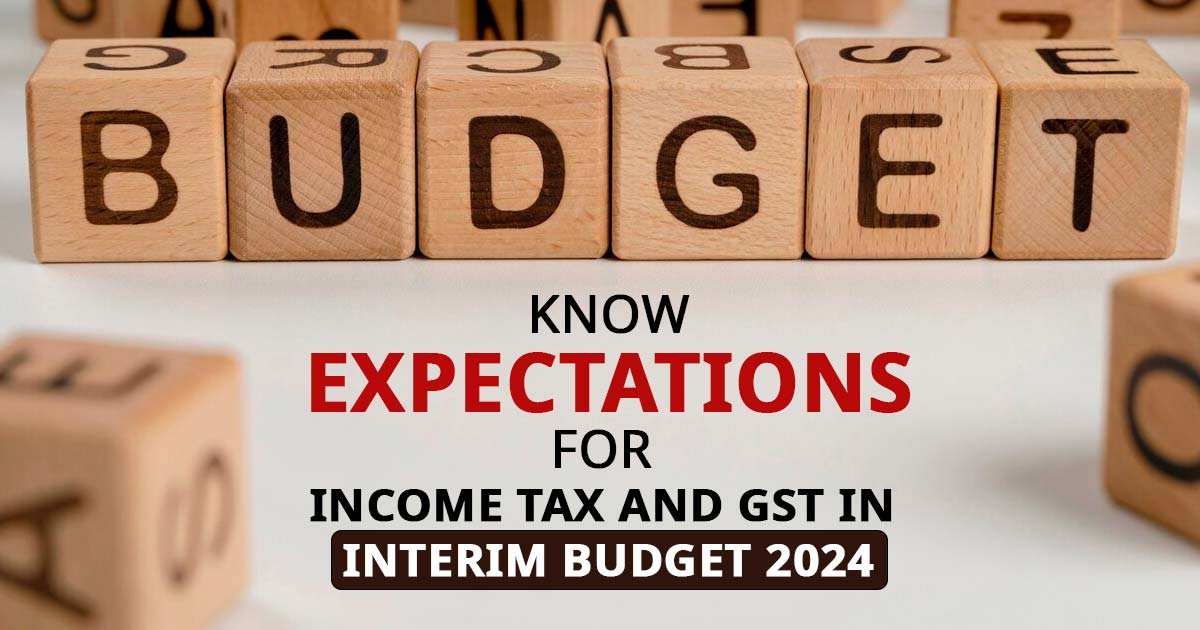Interim Union Budget 2024: Goods and Services Tax (GST)
With elections approaching, Finance Minister Nirmala Sitharaman presents an Interim budget for 2024, addressing the various schemes, programs, and economic development. This article gives information on GST and its proposed changes outlined in the Budget 2024 and Finance Bill.

Budget 2024 Highlights
- The Finance Minister proposes maintaining the existing tax rates for indirect taxes and import duties.
- GST unified the previously fragmented indirect tax structure in India.
- This year, the average monthly gross GST collection has doubled, reaching Rs 1.66 lakh crore.
- The GST tax base increased two-fold.
- In the post-GST period (2017-18 to 2022-23), State SGST revenue buoyancy rose to 1.22 from 0.72 in the pre-GST period (2012-13 to 2015-16).
- 94% of industry leaders positively affirm the transition to GST.
- GST has facilitated supply chain optimization.
- The implementation of GST reduced the compliance burden on trade and industry.
- The decrease in logistics costs and taxes contributes lower prices for goods and services, benefiting consumers.
- Section 2 is amended to define an Input Service Distributor, and the distribution of tax credits must comply with Section 20.
- Section 20 is substituted to outline the distribution of tax credits by the Input Service Distributor (ISD).
- Section 122A is added, imposing a ₹1 lakh penalty per unregistered manufacturing machine and allowing for seizure unless the penalty is paid.
Budget 2024: GST Rates
The finance minister stated that rates of indirect taxes and import duties remain the same. It applies to GST rates as well. Below, we have given the existing GST rates for various goods and services Categories:
| GST Rate | Description | Examples |
| 0% (Nil Rated) | Goods and services exempted from GST | Fresh fruits and vegetables, non-AC hotel accommodation (up to ₹1000 per day per unit), exports |
| 0.25% | Textiles | Fabrics, yarns |
| 3% | Gold | Gold jewellery, bars, coins |
| 5% | Essential items and services | Processed and packaged food items, milk, curd, newspapers, books, hotel accommodation (₹1000-₹2500 per day per unit), transportation services |
| 12% | Most processed goods and services | Clothing, footwear, soaps, detergents, restaurants (excluding AC restaurants), movie tickets (up to ₹100), business class air travel |
| 18% | Most general goods and services | Electronics, appliances, furniture, household items, AC restaurants, movie tickets (above ₹100), economy class air travel |
| 28% | Luxury goods and services | Luxury cars, betting and gambling, pan masala, aerated drinks |
Latest Updates
FSSAI Regulations for Genetically Modified Foods
18 Jan 2026What to Do If You Receive a TDS Default Notice
15 Jan 2026ca4filings.com Services




























-registration.png)



